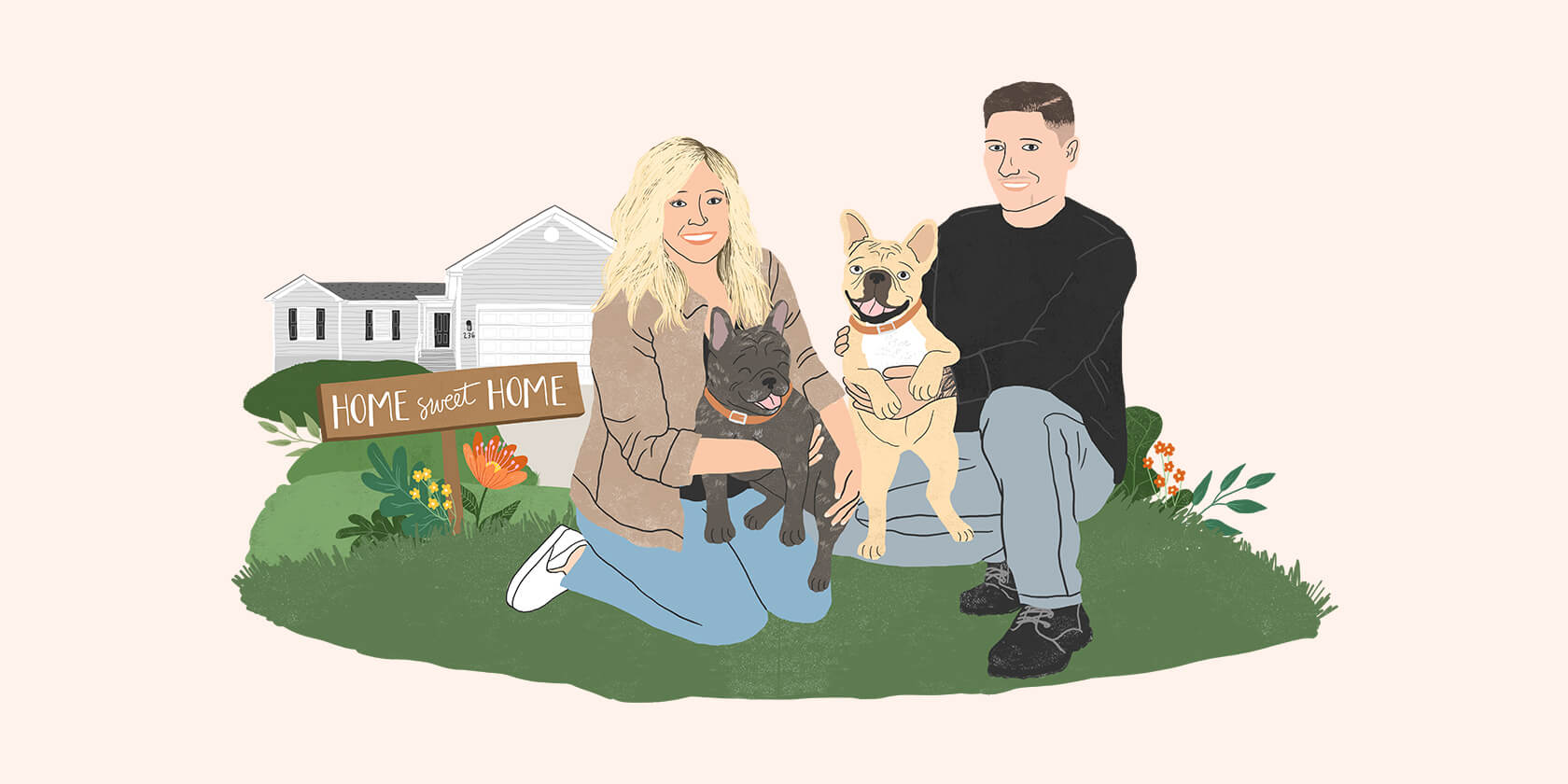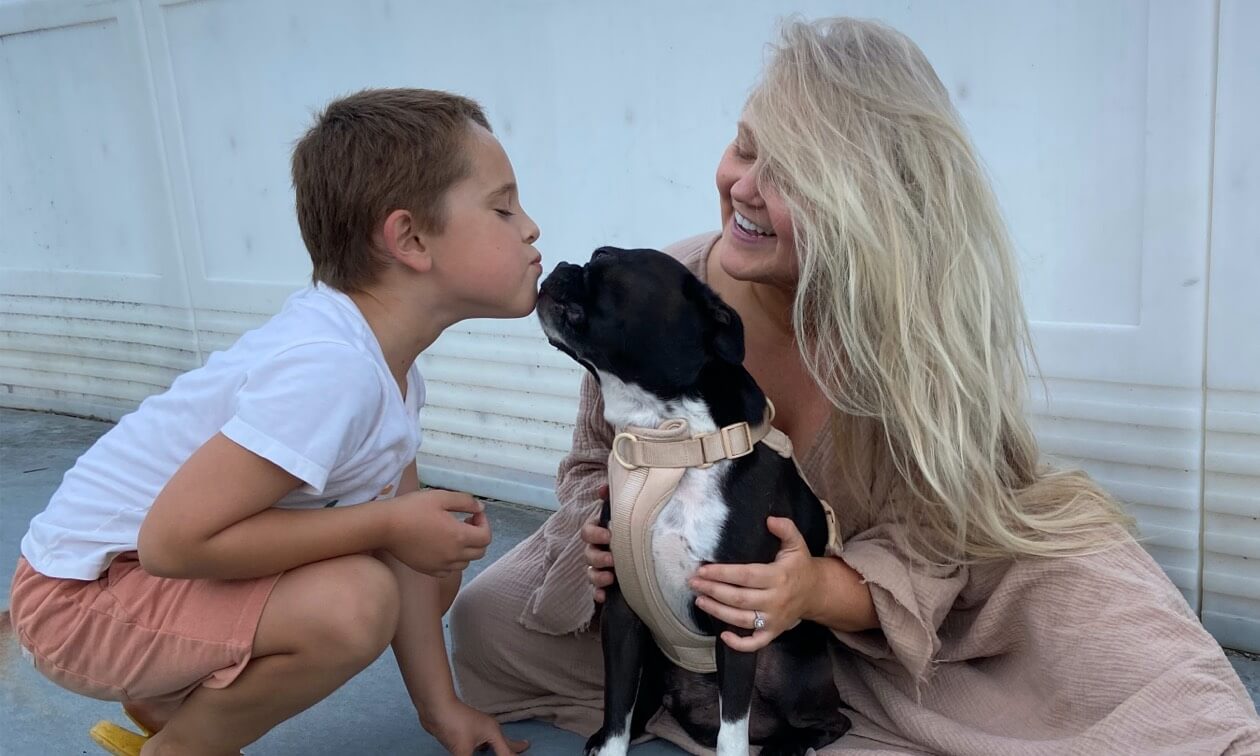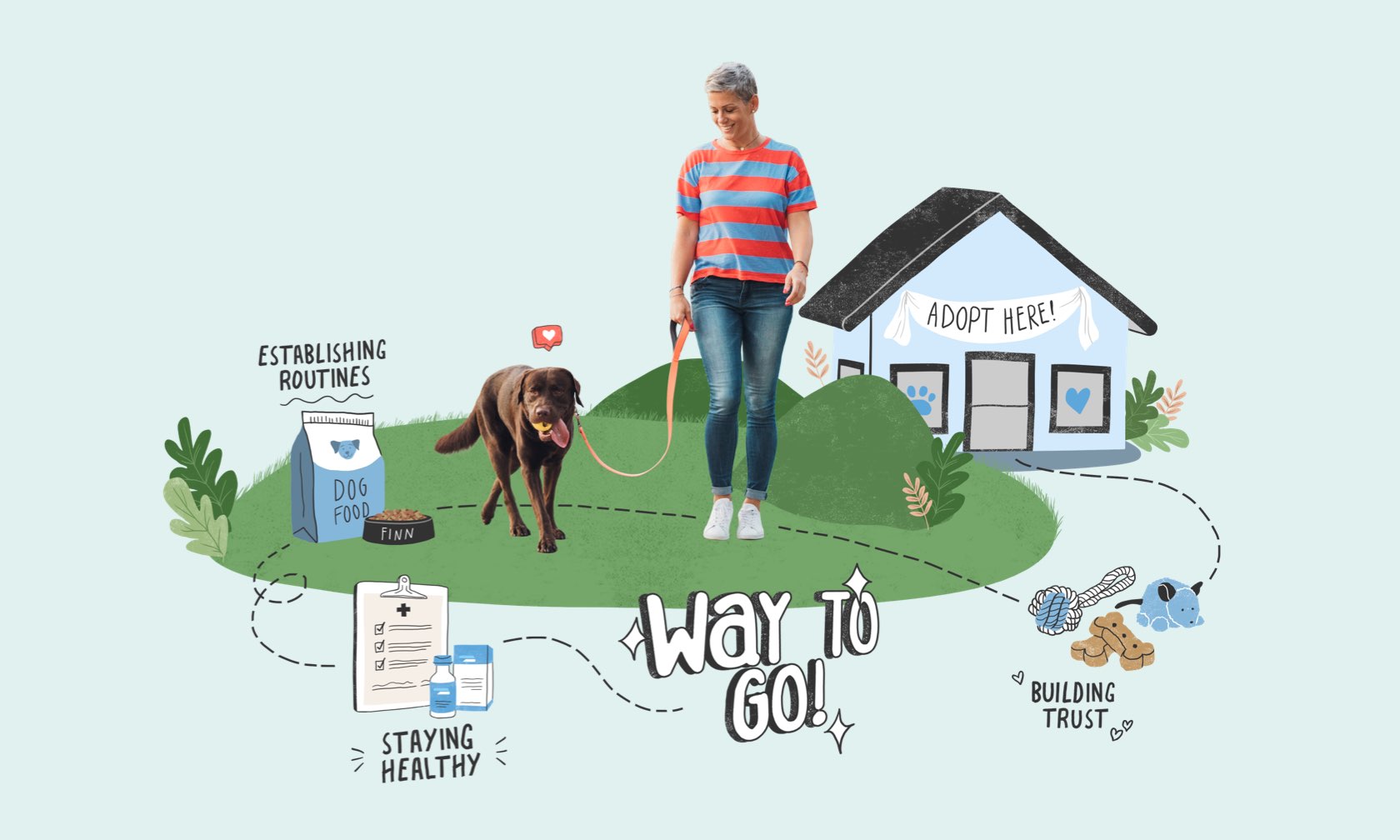Adding a dog to your life is an incredibly rewarding adventure, but it can feel a bit overwhelming as a first time dog owner. Don't worry — your questions about vaccines, vet visits, food, and more are answered here.

What Vaccines Does My Dog Need?
Vaccines help prevent your dog from contracting and spreading different illnesses, so it's important to make sure they're up to date. Future vaccines will depend on their age and previous vaccines. Your veterinarian will help you determine what vaccines your dog needs and when.
Puppies receive a series of vaccines before they're considered fully protected, typically including distemper, hepatitis, parvovirus, and parainfluenza. Although the leptospirosis vaccine was considered optional for dogs in the past, now it is considered essential for all dogs based on updated AAHA (American Animal Hospital Association) dog vaccine guidelines. A rabies vaccination is also administered between 12 and 16 weeks of age, depending on your state and local requirements. Be sure to follow your veterinarian’s recommendation on number and timing of vaccine boosters. Your veterinarian may also recommend other vaccinations based on where you live and what activities your dog participates in (those may include Bordetella, Lyme, and canine influenza).
Once fully vaccinated, it's essential to maintain your dog's vaccinations for full protection. Some require a booster every year, while others are boosted every two to three years. Boarding and doggy daycare facilities may require certain vaccines and booster schedules. The frequency of the vaccine boosters, yearly or every two to three years, will depend on the vaccine type, your dog’s lifestyle/needs, state law, and whether vaccination boosters are scheduled on time.
How Often Should My Dog See the Veterinarian?
Establishing a relationship with a veterinarian ASAP is extremely beneficial. Even if your new dog is already vaccinated, have a veterinarian perform a physical exam to determine your dog's "normal." This makes it easier to catch it when something's off, and you have someone to contact who's already familiar with your dog's health. This first vet visit also gives you a chance to ask any questions you have. Also, check with the veterinarian whether they’d recommend any additional vaccines or boosters based on the dog’s prior vaccination history and lifestyle risks.
After the initial vet visit, your veterinarian will advise you on whether your dog should return yearly for exams or more often. If you have a puppy, they may need to visit more often until they complete their vaccinations. When dogs enter their senior years (around seven years old), they'll need twice-yearly examinations. Some medical conditions require more frequent vet visits to monitor their health.
What Parasite Preventatives Does My Dog Need?
Keep those nasty fleas, ticks, and heartworms away with a year-round preventative. All these parasites can transmit dangerous illnesses.
What Do I Feed My Dog?
It's best to keep your new dog on the same food and feeding schedule for at least a week after bringing them home. Then you can slowly transition to a new food or schedule if needed. (If gradually changing foods you can do so over seven to ten days by mixing ¼ ratio of the new food to ¾ ratio of the original food for a few days, then ½ and ½, then ¾ and ¼, then to the new food completely). Talk with your veterinarian about what food is best for your dog's health and how much they should be eating.
If you have a puppy, you'll want to transition them to an adult dog food formula around one year of age. Your adult dog will not need as many calories as they did when growing up as a puppy, and there are some other nutrient differences between puppy food and adult dog food. And as your dog moves into their senior years, you'll want to consider transitioning again as their calorie and nutritional needs change. As always, your veterinarian is your best resource for pet feeding recommendations.
How Often Should I Bathe My Dog?
How often you bathe your dog depends on what type of coat they have, your personal preferences, and how dirty they get. However, you don't want to do it too often, stripping your dog's coat of natural oils and drying out their skin. Unless required for medical reasons, it's recommended to not bathe your dog more than once every four weeks with regular dog shampoo or once every two weeks with soap-free, hypoallergenic dog shampoo. Regular grooming (including brushing, ear cleaning, nail trimming, and teeth brushing) is important between baths. Daily brushing also lets you check for fleas, ticks, foxtails, burrs, or painful spots.
Dogs with single-layer, continuously growing coats (such as Poodles, Doodles, Yorkshire Terriers, and Portuguese Water Dogs) require more frequent grooming to keep their locks manageable. You'll want to brush their coat daily to prevent matting and schedule regular haircuts or learn how to groom at home.
What Dog Supplies Do I Need?
You'll want to have some dog supply essentials on hand.
Leash, Collar, and Harness
You'll need a collar or harness while walking your dog. A well-fitting harness is the most secure option. Don't forget ID tags with your contact information in case your new dog gets loose. Choose a leash that's comfortable for you to hold and the correct size and weight for your dog.
Food and Water Bowls
You should have separate bowls for food and water. Stainless steel bowls are safe and easy to clean. Ensure that your dog's water dish is always full of water. You can even have multiple water bowls around your home.
Dog Food
When getting a new dog, keep them on the same food that they were eating in their previous home or rescue before transitioning to a new food (if you choose to transition them). Don't forget the training treats and chews!
Toys
Toys are essential to your dog's enrichment. Rope toys are good for a dog's dental health, as are certain types of chews. Don't choose anything too hard, as it can harm your dog's teeth. Some dogs love plush toys. Try a select few toys at first to see what your dog prefers.
Cozy Beds
Whether or not you allow your dog on the bed or furniture, choose a comfortable dog bed that they can call their own.
Crate
Will you be crate training? If so, purchase a crate that's large enough for your dog to stand up, turn around, and lay down in with outstretched legs.
How Do I Dog-Proof My Home?
Dog-proofing is important to keep your dog safe. As a new dog owner, consider dog-proofing the main area of your home first, where your dog will spend most of their time, and block access to other rooms using baby gates while you work through each space separately.
Supervise your dog to see what you may need to adjust in their environment. Below are some basics:
Keep Food Off Counters
Store food in closed cupboards, drawers, or a pantry. Keep a close eye on any foods that are toxic to dogs, like chocolates, grapes, onions, or anything containing xylitol.
Use Safety Latches
If your curious pooch can open cabinets or pantry doors that they shouldn't get into, secure them with cabinet latches or other locking device.
Store Medications Safely
Don't leave medications within reach. Store them in closed, high cabinets and dispense medication over a sink or counter in case any are dropped. If any do fall to the floor, retrieve them before your dog does.
Store Cleaning Products and Detergents Safely
Keep cleaning solutions and detergents out of reach of dogs, either in the laundry room or in a dog-proofed cabinet.
Check Your Foliage
Remove toxic plants or keep them out of your dog's reach, either in a high place or in a room that your pup isn't allowed in.
Protect Cords
Dogs love to chew. Some will chew about anything, including electric cables and cords. Keep cords covered and out of sight to prevent chewing.
Why is Dog Training Important?
Basic training skills are less about doing something when asked and more about having a way to keep your dog safe and prevent unwanted behaviors or behavioral issues from arising. Some important cues to start with include coming-when-called and leash manners. Training your dog to sit can help create polite greeting habits and prevent jumping on people. With these skills, your dog will be able to accompany you to more places and be a polite member of society.
Dog training should be about building a relationship with your new dog based on trust and clear communication. As a first time dog owner, building that bond with your pup is important. Training is the perfect way to give your dog's brain a workout and burn excess energy. Seek out a certified dog trainer in your area to help you get started with positive reinforcement training.
ZPC-01901R1



